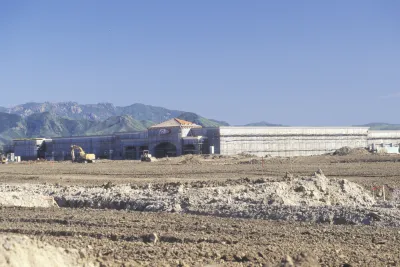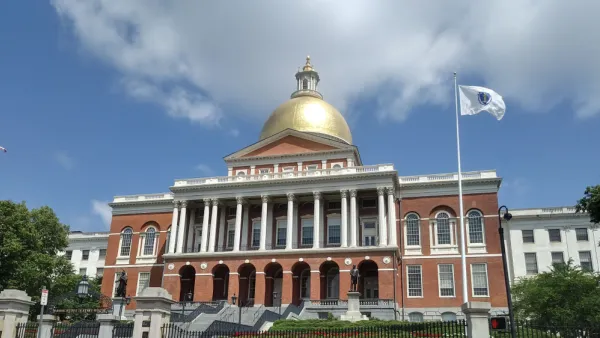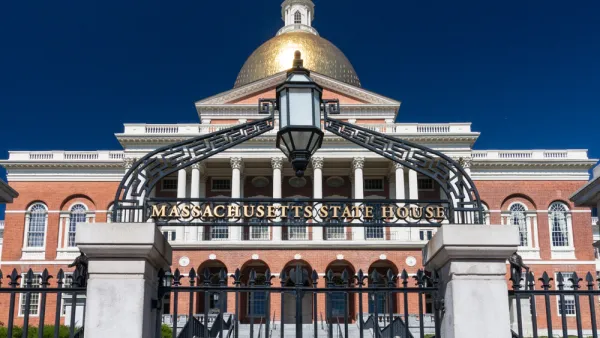The consequences of more than a century of planning and zoning are gaining more attention in the media as the country struggles through a pandemic. Will these lessons win new political support for more density in residential neighborhoods?

"Around the country, cities and states are grappling with how zoning rules have deeply codified racial inequity and exacerbated climate change," according to an article by Lauren Sommer.
Sommer is expanding the discourse that has followed President Trump's recent comments about the effect of progressive planning policies on the future of U.S. suburbs to focus on the racial and economic benefits of zoning reform. On the latter, Sommer writes: "Experts say tackling climate change will mean reshaping neighborhoods with a new focus on public transit, biking and walkability."
The article implies that by focusing on the environmental benefits of new kinds of density in residential neighborhoods, proponents of planning reforms might win over more of the Democrats who oppose density in communities like those in California, where upzoning bills like SB 50 and SB 827 failed to win the necessary political support in recent years.
The article also includes analysis of the accomplishments toward single-family zoning reform in Minneapolis and the state of Oregon, highlighting especially how reformers won political support for the idea of rescinding single-family zoning citywide during the process of developing and approving the Minneapolis 2040 Comprehensive Plan.
While the article doesn't necessarily include an information that will come as a surprise to regular readers of Planetizen, it does provide a nearly comprehensive overview of the environmental and racial effects of traditional approaches to planning and zoning, presenting the information to both a more general audience (i.e., of non planners) and a more specific audience (i.e., the kind of liberals that claim to support racial equality and environmental regulation while supporting the kind of planning reforms that would further both of those goals). Left out of the conversation in this article, however, is the reality and growing concern (as the housing market faces yet another epochal upheaval) that new residential housing capacity will be mostly snapped up by private equity firms and Wall Street interests, falling far short of intended goals for social and economic equity.
FULL STORY: Why Sprawl Could Be The Next Big Climate Change Battle

Analysis: Cybertruck Fatality Rate Far Exceeds That of Ford Pinto
The Tesla Cybertruck was recalled seven times last year.

National Parks Layoffs Will Cause Communities to Lose Billions
Thousands of essential park workers were laid off this week, just before the busy spring break season.

Retro-silient?: America’s First “Eco-burb,” The Woodlands Turns 50
A master-planned community north of Houston offers lessons on green infrastructure and resilient design, but falls short of its founder’s lofty affordability and walkability goals.

Test News Post 1
This is a summary

Analysis: Cybertruck Fatality Rate Far Exceeds That of Ford Pinto
The Tesla Cybertruck was recalled seven times last year.

Test News Headline 46
Test for the image on the front page.
Urban Design for Planners 1: Software Tools
This six-course series explores essential urban design concepts using open source software and equips planners with the tools they need to participate fully in the urban design process.
Planning for Universal Design
Learn the tools for implementing Universal Design in planning regulations.
EMC Planning Group, Inc.
Planetizen
Planetizen
Mpact (formerly Rail~Volution)
Great Falls Development Authority, Inc.
HUDs Office of Policy Development and Research
NYU Wagner Graduate School of Public Service




























